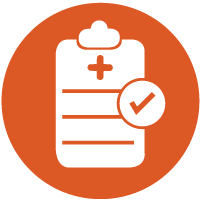
Aim and objectives:
Nowadays, many older persons with different levels of physical and/or mental challenges are assisted at home. They need help for a considerable part of their daily living, which is usually provided by a family member or by a person employed to do so. In both cases, the health literacy for the caregiver is of crucial importance in guaranteeing older persons access to appropriate information and care, which includes the administration of medication, preparing and eating food, help with personal hygiene, and support when accessing and navigating the health system (e.g. programming visits with health professionals, physical examinations, etc.).
Many family and paid caregivers do not have the requisite levels of health literacy (cognitive, social abilities) to access, understand, and act upon the information needed to take care of dependent older persons.
Method:
- measuring caregivers’ health literacy levels in different settings, including at home and in contacts with the health system;
- assessing caregivers’ health literacy levels in relation to the level of complexity of care needed to assist older persons;
- targeting training for health care professionals assisting older persons with disabilities, to help them assess the health literacy levels needed for caregivers during different phases of the care pathway for older persons;
- reviewing the health literacy skills and competencies for caregivers to advise and train them accordingly.
Outcome:
Being able to assess the health literacy skills and competencies needed for caregivers helps to decide whether a given caregiver has the capability to take care of older persons with comorbidities and/or a high level of care complexity. This assessment plays a key role in reflecting and reviewing the relationships between healthcare professionals to ensure continuity in the care offered, so that the family remains supported.
Added value:
The health literacy for caregivers helps to provide appropriate continuous care - formal, managerial and relational care - for older persons with different levels of dependency.


